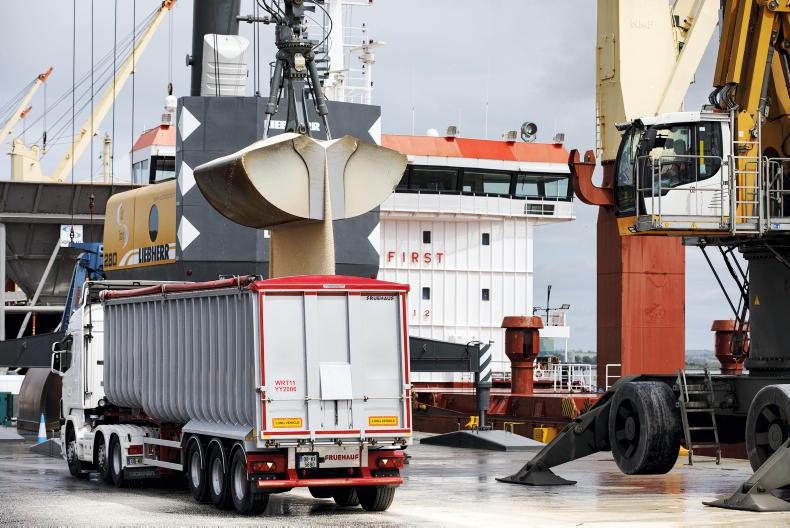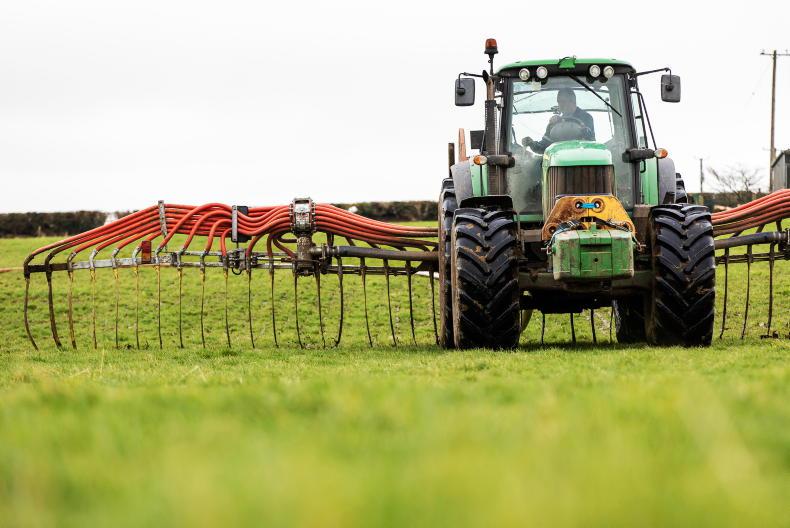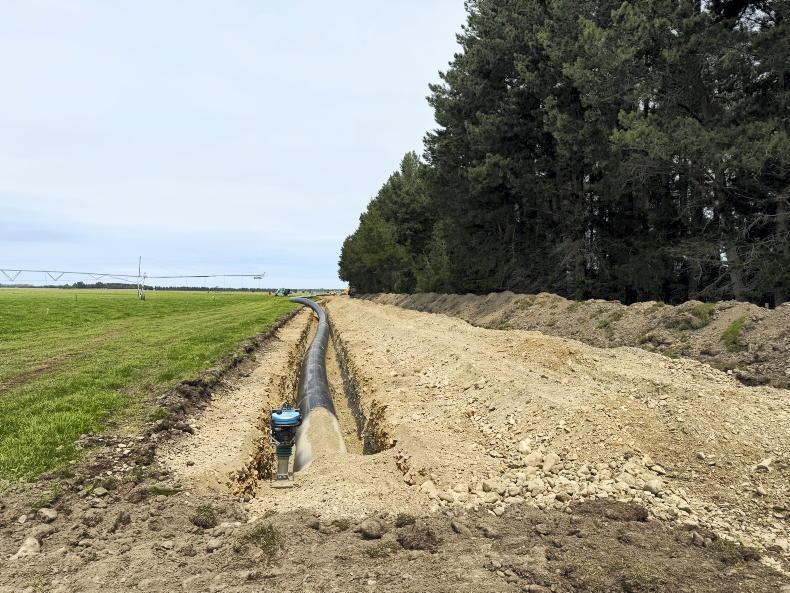The threat of further cuts to the nitrates derogation represents an existential threat to dairy farmers.
No more than farmers in any other sector, dairy farmers operate in a globally competitive environment, where efficiency is key to survival.
Reducing or removing the derogation reduces Irish dairy farmers’ competitiveness.
Up to now, Ireland’s only competitive advantage for dairy farming was our low-cost, grass-based system.
Take away our farmers’ ability to appropriately stock the farm according to what grass it grows and what other advantage do we have? Land and labour are not cheap. We don’t have a large domestic population to buy our dairy produce so we have to export 90% of it.
Energy costs are high and feed and fertiliser costs are high relative to other countries.
Dairy farming is a unique occupation in the sense that cows must usually be milked twice a day, every day.
It’s hard, manual work with routinely unsociable hours. It is also the only sector that can provide a full family income from 100 to 150 acres. No other mainstream farming sector in Ireland can do the same.
Faced with a significant cut to income, many dairy farmers will be forced to leave the sector. Unlike beef or tillage farming, dairy farming is not conducive to part-time farming and those who do work off-farm only do so by employing additional labour. If income is cut, the money won’t be there to pay that labour.
The investment in time, physical work and financial capital is too great in dairy farming to just plug along and keep going even if the farm is making a loss.
The love for farming will only go so far because if the reward isn’t in it, dairy farmers will get out.
Dairy farmers tend to be younger than average, they are highly skilled and well-educated. These are skills that are in high demand across the economy.
The point here is that many dairy farmers have plenty of other options available to them, other than milking cows, to make money.
We are already seeing signs of pushback. Milk supply is back nationally by about 7% so far this year and while that can partly be attributed to the weather, the risk of the nitrates derogation is also having an impact.
Equally, there is anecdotal evidence to say that dairy dispersal sales are on the increase and that more farmers have decided not to put their herd back in calf to dairy next season, as they plan to exit milking later this year.
While it may have been fashionable to get into cows for the last 10 years, there is a very real risk to the future of the sector that it could become fashionable to get out of cows over the coming 10 years. This will be to the detriment of the family farm model that is synonymous with Irish agriculture. Without the derogation, it’ll be the survival of the biggest.
June 2024: the EPA is expected to publish the indicators report on water quality in 2023. The data on nitrates in rivers, lakes, estuaries and groundwater within this report and reports on previous years will be used as part of the submission by the Irish authorities to the European Commission when applying for an extension to the derogation. Of particular relevance here is the trend in water quality over time. Late 2024: Irish authorities to launch a review of the current Nitrates Action Programme and commence a draft sixth Nitrates Action Programme. This programme will set out the measures, both existing and new, that will be undertaken in the 2026 to 2030 phase in order to comply with the terms of the nitrates directive. Last time, the programme was subject to two rounds of public consultation. June 2025: the EPA will publish the indicators report on water quality in 2024. This data, along with previous years’ data, will be used to inform the European Commission on trends in water quality in Ireland. Late 2025: Irish authorities meet with the European Commission to seek approval for the Nitrates Action Programme and the renewal of the nitrates derogation. A further cut to the nitrates derogation will threaten the viability of many dairy enterprises. A reduction in nitrates limits and a cut to herd size erodes Ireland’s competitive advantage of a low-cost grass-based system.There is a very real risk to the future of the sector and an exodus over the next decade if the derogation is not retained.
The threat of further cuts to the nitrates derogation represents an existential threat to dairy farmers.
No more than farmers in any other sector, dairy farmers operate in a globally competitive environment, where efficiency is key to survival.
Reducing or removing the derogation reduces Irish dairy farmers’ competitiveness.
Up to now, Ireland’s only competitive advantage for dairy farming was our low-cost, grass-based system.
Take away our farmers’ ability to appropriately stock the farm according to what grass it grows and what other advantage do we have? Land and labour are not cheap. We don’t have a large domestic population to buy our dairy produce so we have to export 90% of it.
Energy costs are high and feed and fertiliser costs are high relative to other countries.
Dairy farming is a unique occupation in the sense that cows must usually be milked twice a day, every day.
It’s hard, manual work with routinely unsociable hours. It is also the only sector that can provide a full family income from 100 to 150 acres. No other mainstream farming sector in Ireland can do the same.
Faced with a significant cut to income, many dairy farmers will be forced to leave the sector. Unlike beef or tillage farming, dairy farming is not conducive to part-time farming and those who do work off-farm only do so by employing additional labour. If income is cut, the money won’t be there to pay that labour.
The investment in time, physical work and financial capital is too great in dairy farming to just plug along and keep going even if the farm is making a loss.
The love for farming will only go so far because if the reward isn’t in it, dairy farmers will get out.
Dairy farmers tend to be younger than average, they are highly skilled and well-educated. These are skills that are in high demand across the economy.
The point here is that many dairy farmers have plenty of other options available to them, other than milking cows, to make money.
We are already seeing signs of pushback. Milk supply is back nationally by about 7% so far this year and while that can partly be attributed to the weather, the risk of the nitrates derogation is also having an impact.
Equally, there is anecdotal evidence to say that dairy dispersal sales are on the increase and that more farmers have decided not to put their herd back in calf to dairy next season, as they plan to exit milking later this year.
While it may have been fashionable to get into cows for the last 10 years, there is a very real risk to the future of the sector that it could become fashionable to get out of cows over the coming 10 years. This will be to the detriment of the family farm model that is synonymous with Irish agriculture. Without the derogation, it’ll be the survival of the biggest.
June 2024: the EPA is expected to publish the indicators report on water quality in 2023. The data on nitrates in rivers, lakes, estuaries and groundwater within this report and reports on previous years will be used as part of the submission by the Irish authorities to the European Commission when applying for an extension to the derogation. Of particular relevance here is the trend in water quality over time. Late 2024: Irish authorities to launch a review of the current Nitrates Action Programme and commence a draft sixth Nitrates Action Programme. This programme will set out the measures, both existing and new, that will be undertaken in the 2026 to 2030 phase in order to comply with the terms of the nitrates directive. Last time, the programme was subject to two rounds of public consultation. June 2025: the EPA will publish the indicators report on water quality in 2024. This data, along with previous years’ data, will be used to inform the European Commission on trends in water quality in Ireland. Late 2025: Irish authorities meet with the European Commission to seek approval for the Nitrates Action Programme and the renewal of the nitrates derogation. A further cut to the nitrates derogation will threaten the viability of many dairy enterprises. A reduction in nitrates limits and a cut to herd size erodes Ireland’s competitive advantage of a low-cost grass-based system.There is a very real risk to the future of the sector and an exodus over the next decade if the derogation is not retained. 








SHARING OPTIONS